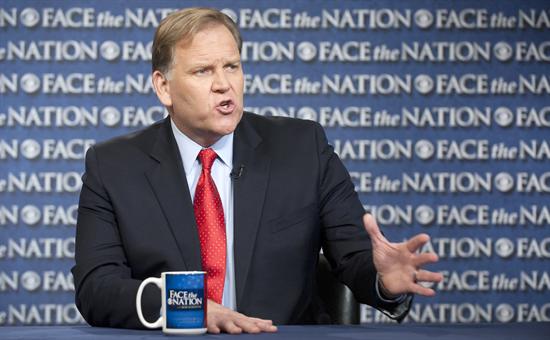Wanted: Midwest Republicans for Senate in 2014


In the Midwest, it is becoming difficult to find high-profile Republicans for Senate races in 2014. This past week, Rep. Mike Rogers (R-MI 8) announced he would not seek election to replace the retiring Carl Levin (D-MI), Michigan's senior member of the United States Senate. Rogers cited his position within House leadership (he is chair of the House Intelligence Committee) and the GOP majority in the House as reasons to why he would not seek the open senate office. Rogers was viewed by many as the favorite for the seat, at least among establishment Republicans.
Rogers becomes the latest House member deciding not to run for the Senate. He joins Rep. Tom Latham (R-IA 3) and Rep. Steve King (R-IA 4) as Midwestern House members who are passing on an open Senate seat. Latham and King both declined to run earlier this year after Sen. Tom Harkin (D-IA) announced he would retire and not seek reelection in 2014. Congressman Justin Amash, (R-MI 3) has also been mulling a bid for the open seat in Michigan but, according to Politico, he also seems hesitant to leave the House for reasons similar to Rogers, Latham, and King.
The Michigan GOP went through something very similar last election cycle while trying to defeat Sen. Debbie Stabenow (D-MI). The top two contenders on the GOP side were former Congressman Pete Hoekstra and education reformer Clark Durant. November saw Hoekstra lose to Stabenow by twenty-one points, a far greater margin than by what Mitt Romney lost the state (he lost to President Obama by only nine percentage points).
The search for a candidates across the Midwest is not new. It is hardly just a regional problem for the GOP either. However, the Midwest seems to be teeming with high-profile House members who are reluctant to leave the greener GOP pastures of the House for the chance to become one of one-hundred in the Senate.
In Washington DC, a town that personifies power struggles, why would a Republican want to leave the GOP majority in the House - especially if they are on a plum committee or have a chairmanship or vice-chairmanship - to join the minority and become the junior member for their state? Not only would this move lose them power and influence, it would also cost a lot of money and political capital to do so.
In Rogers case, he would lose his post with House Intel (obviously) while becoming the junior member to Stabenow. If Amash left the House, he would go from a base of power as a leading Libertarian to perhaps becoming a side-story to Sen. Rand Paul (R-KY) and Sen. Ted Cruz (R-TX). Dave Camp, the Chair of House Ways & Means (R-MI 4) has not even been mentioned in articles about the open seat due to leading one of the most high-profile committees in either chamber. Congresswoman Candice Miller (R-MI 10) has also not been mentioned after declining to run against Stabenow twice and being asked to join several other statewide races.
One has to wonder if this Midwestern trend could continue into 2016 when it is possible that Senator Charles Grassley (R-IA) could retire, as could Senator Dan Coats (R-IN). While Indiana is a red state, Republican State Treasurer Richard Mourdock lost to then Congressman Joe Donnelly (D-IN) after ousting Senator Richard Lugar in a May primary. A Republican victory - if Coats does retire - is far from given in the Hoosier State.
The Republican National Committee, and its campaign arm in the Senate, the National Republican Senatorial Committee have their work cut out for them in two very important races this fall. These two seats represent the chance to move closer to being the majority party in both Houses. If the GOP can claim a majority, or close to it, then recruiting for 2016 would seemingly be a much easier road than the one they are currently traversing.



